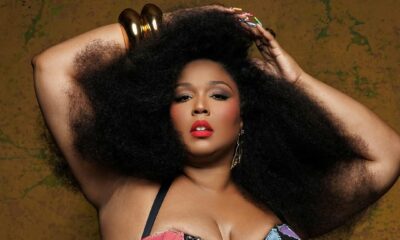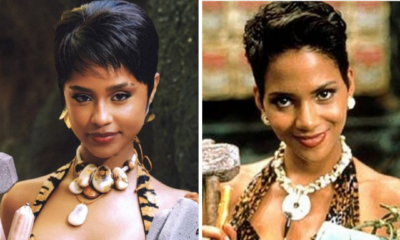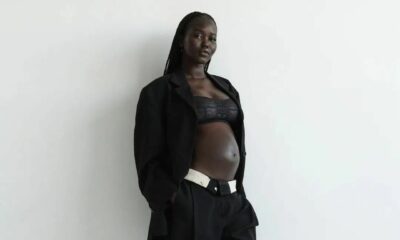When I ask Lizzo who she is dating, she tells me that her five-times-platinum single “Truth Hurts” from Cuz I Love You is “damn near a profile on a human being minus his name,” but she’s reluctant to say more; “I think it’s important to me as a human being to not disclose everything in my life.”
As much as Cuz I Love You is an album about men, though, it is an album about self-love.
Music
Lizzo Served Unmissable Looks on Vogue Magazine’s New Cover!
Award-winning singer Lizzo is the cover star of Vogue Magazine‘s October 2020 issue.
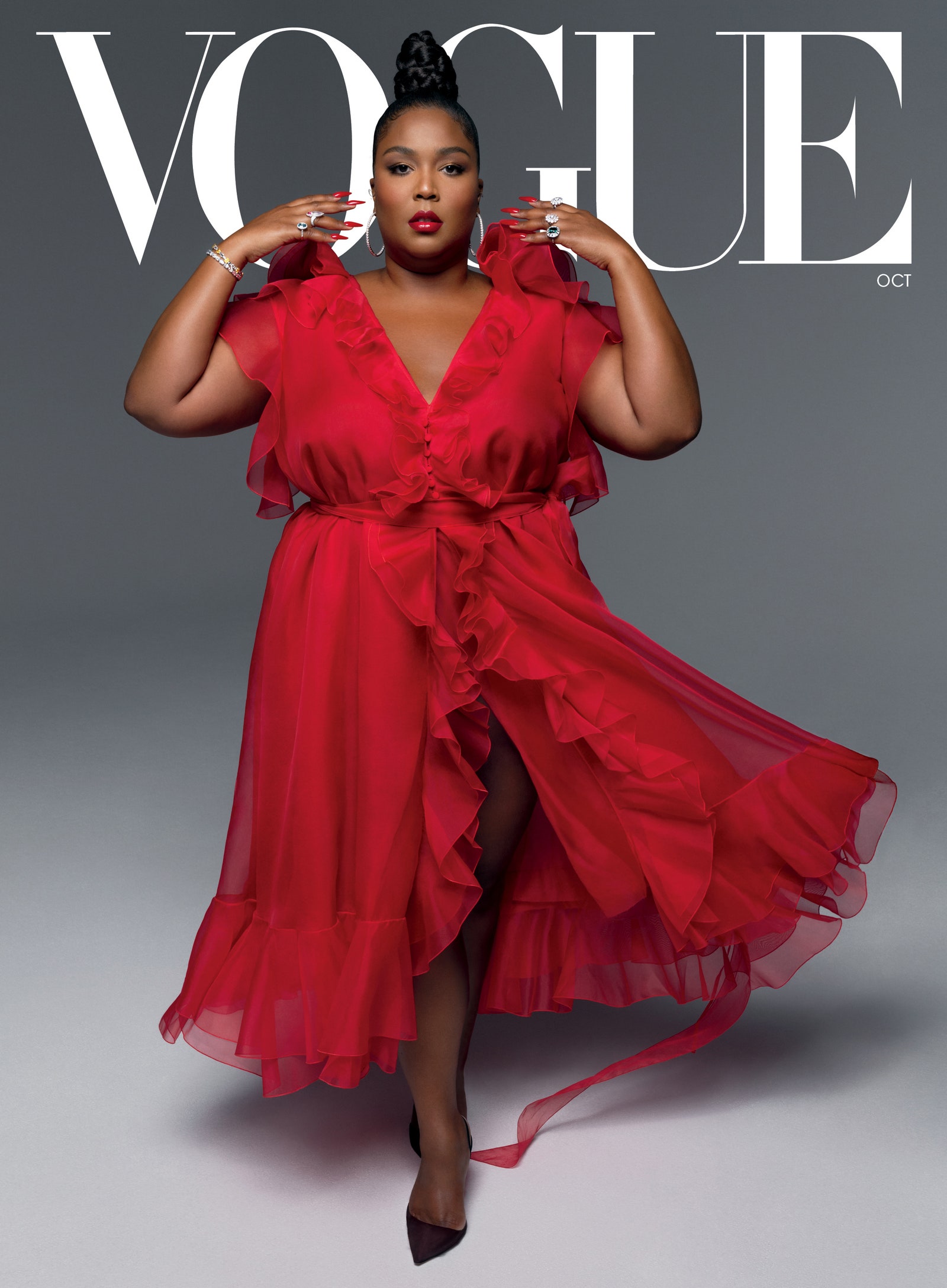
Interviewed by Claudia Rankine, the star speaks on topics ranging from Black Lives Matter and her musical beginnings to the body positivity movement, for which she’s been a torch-bearer since the start of her career.
For the cover, Lizzo looked her best yet in a red-hot frock by Valentino, and models look from Gucci, Moschino Couture and LaQuan Smith.
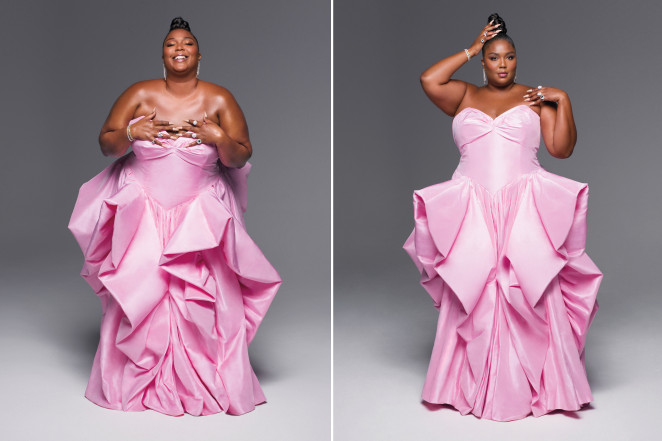
Read excerpts from the feature below
On body positivity
Now, you look at the hashtag ‘body-positive,’ and you see smaller-framed girls, curvier girls. Lotta white girls. And I feel no ways about that because inclusivity is what my message is always about. I’m glad that this conversation is being included in the mainstream narrative. What I don’t like is how the people that this term was created for are not benefiting from it.
Girls with back fat, girls with bellies that hang, girls with thighs that aren’t separated, that overlap. Girls with stretch marks. You know, girls who are in the 18-plus club. They need to be benefiting from … the mainstream effect of body positivity now. But with everything that goes mainstream, it gets changed. It gets — you know, it gets made acceptable.
…I think it’s lazy for me to just say I’m body positive at this point. It’s easy. I would like to be body-normative. I want to normalize my body. And not just be like, ‘Ooh, look at this cool movement. Being fat is body positive.’ No, being fat is normal.
“I think now, I owe it to the people who started this to not just stop here,” she explained. “We have to make people uncomfortable again, so that we can continue to change. Change is always uncomfortable, right?”
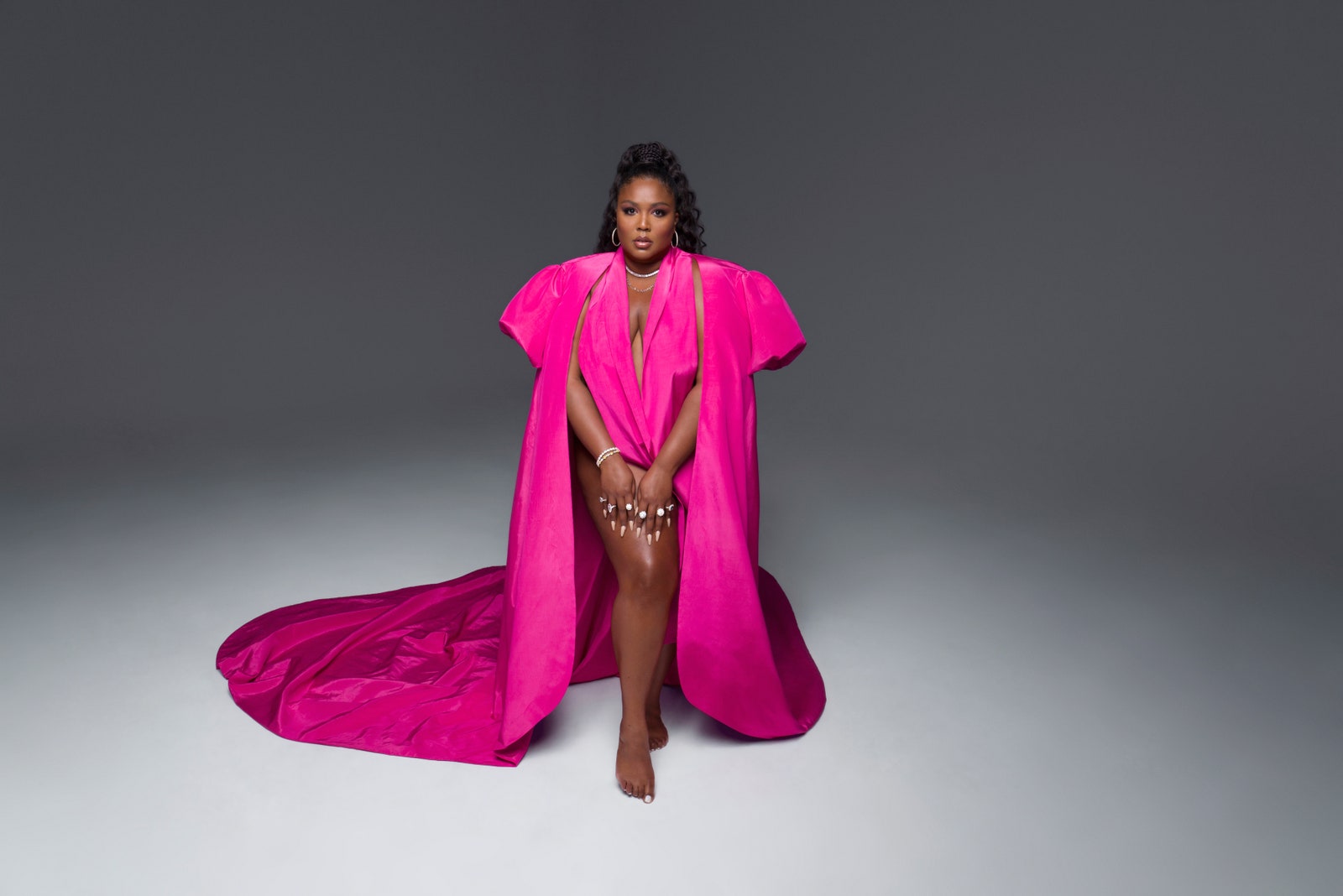
On Black Lives Matter Protest
Like all conscious Black people, Lizzo says she has “been brokenhearted by this country” since she was a child. “My dad taught me very early on about what being Black in this country is. When I learned about Emmett Till, I was so young. And I have never forgotten his face.”
As she describes it to me now, she was thinking, “They don’t actually care. And ‘they’—I don’t know who ‘they’ are. But I know that they don’t care, because if shit like this is still happening, there has to be a ‘they.’ They don’t care about somebody’s actual life.”
The realization in part prompted her to write “My Skin,” which she released in 2015, just after the Jamar Clark shooting in Minneapolis by police officers Mark Ringgenberg and Dustin Schwarze. “I woke up in this,” Lizzo sings. “I woke in my skin. I can’t wash it away, so you can’t take it away—my skin. Brown skin.”
I have been thinking about this song lately because, for me, it speaks to the toll the violence takes against Black people, and because it performs the transformative achievement that Lizzo has come to stand for: The song politicizes, and in a sense weaponizes, self-love, body positivity, and sex positivity.
We can’t stop the shooting, we can’t stop the racism, but we don’t have to take part in the hatred of us: “I love you, don’t you forget it, you beautiful Black masterpiece!” Lizzo sings. Here was Lizzo’s first message to Minneapolis and by extension the country: “I’m done with the struggle. I just wanna enjoy my life now and maybe appreciate my skin.” This enjoyment, this recognition, is for her the revolution. It’s in your face. Sometimes it’s a protest. Sometimes it’s just feeling free. But whatever the fuck it is, it’s being alive in our beautiful Black skin.
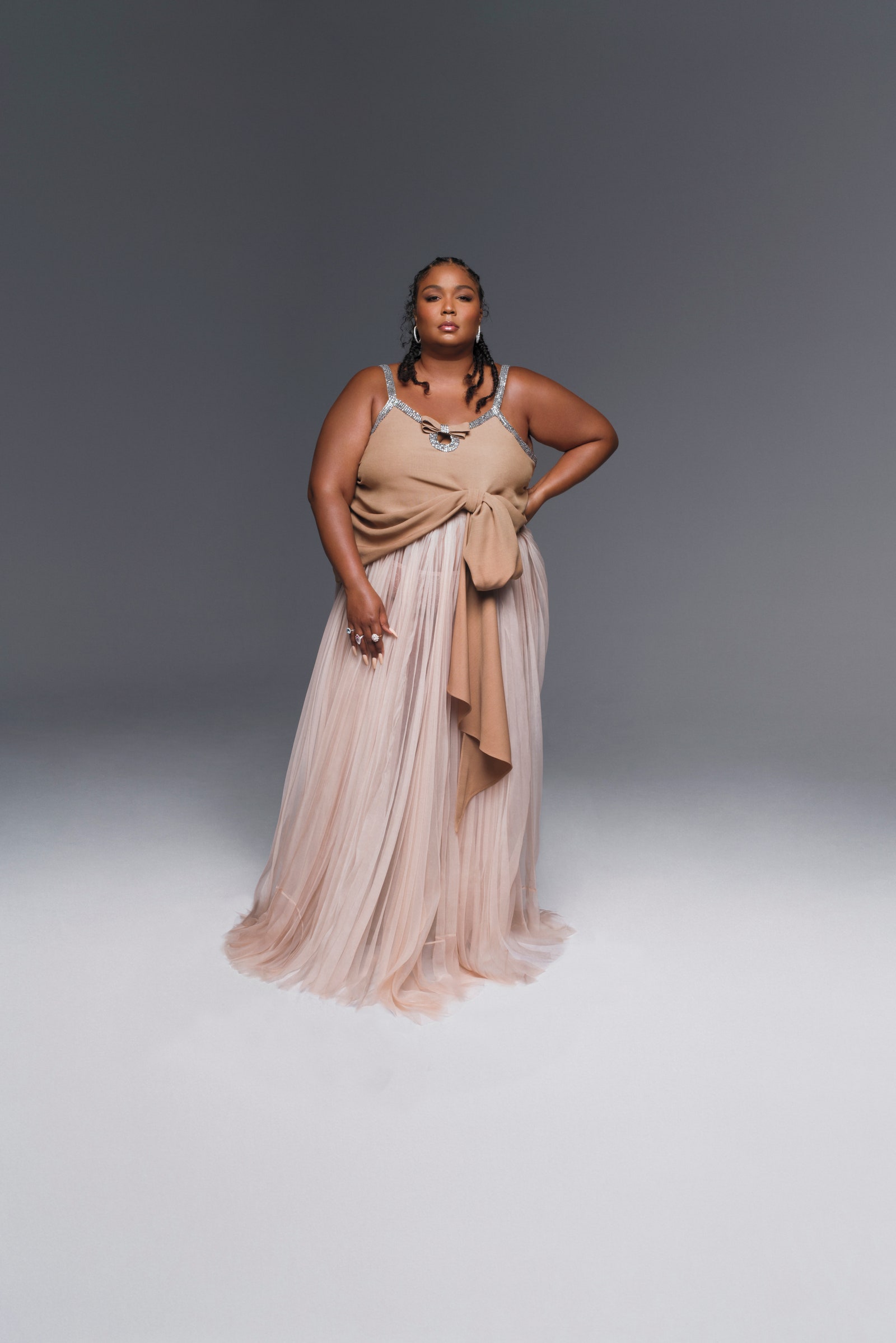
On dropping a new album
Oh, girl, I don’t know. I gotta finish the songs. It’s gonna be good, though. I’ll tell you that. It’s gonna be motherfucking good.
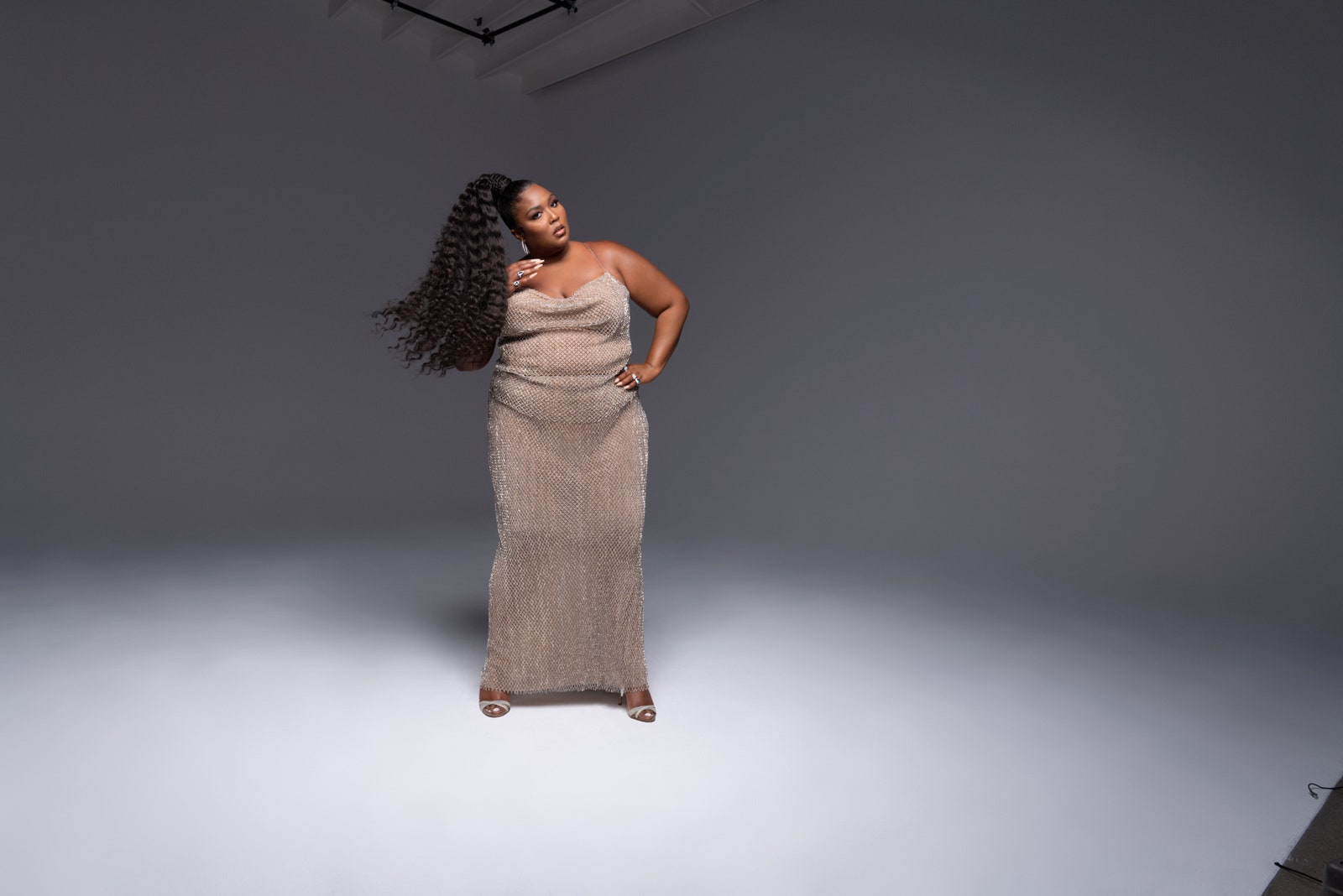
On who she’s dating
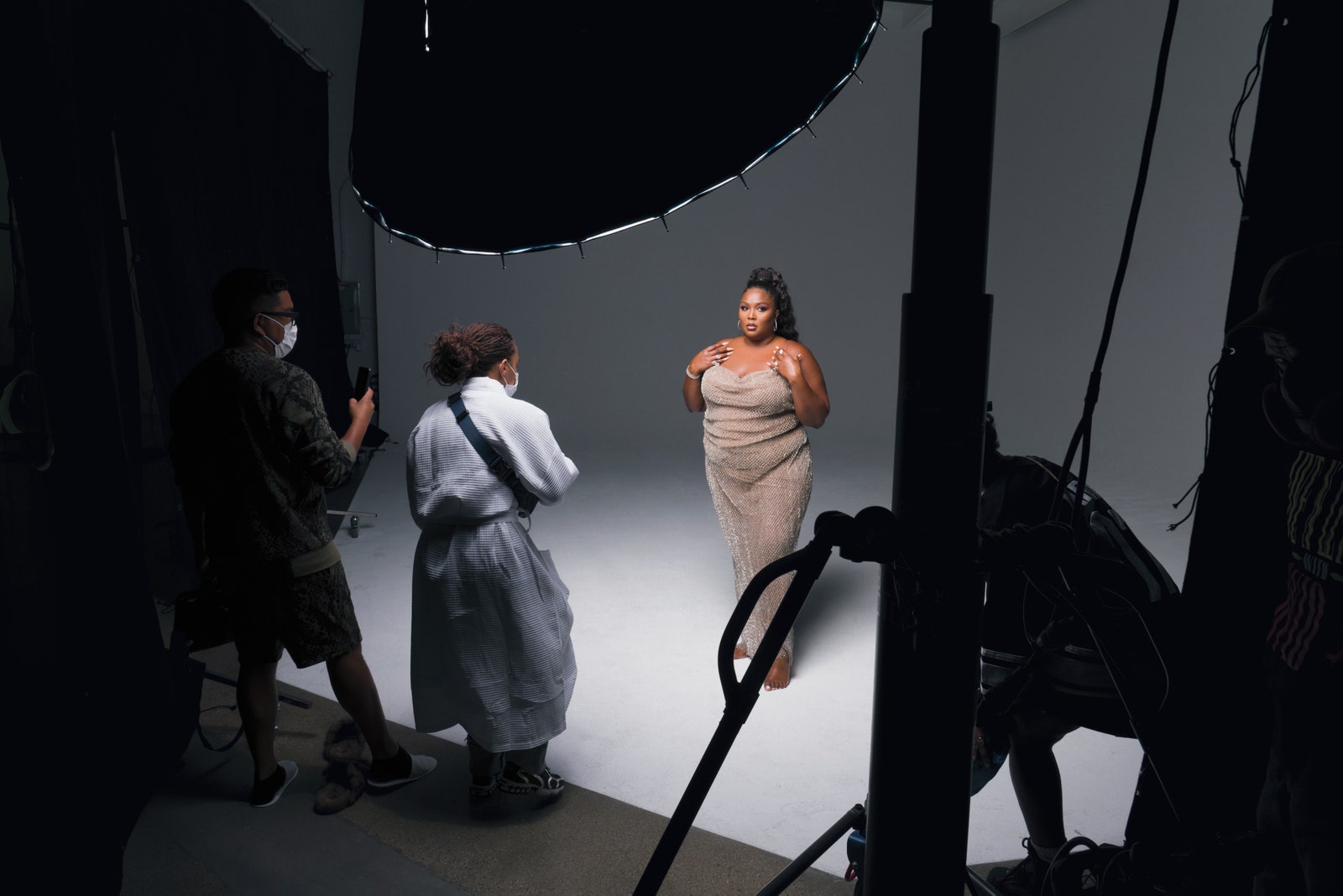
Read the full feature on www.vogue.com
Credits:
Photographed by @hypewilliams
Styled by @mr_carlos_nazario
Written by Claudia Rankine
Voguemagazine


